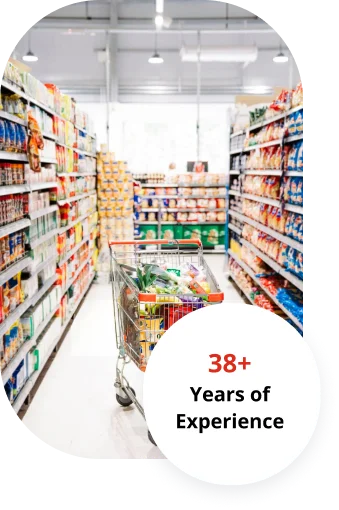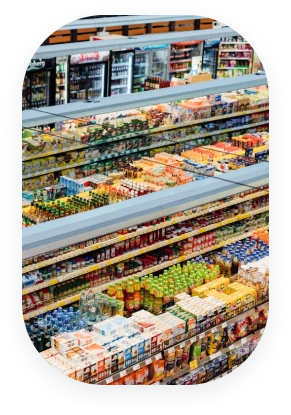
Lighthouse ERP
ERP for FMCG Industry ( Fast Moving Consumer Goods)
Simple to Use
Easy to Implement
Flexible to Customized Solution

Fast-Moving Consumer Goods (FMCG) products that move quickly off the shelves due to their short shelf life and constant demand. These include packaged foods, personal care items, beverages, over-the-counter medications, and household essentials. In an industry where expiration timelines are tight and consumer expectations are immediate; manufacturers and distributors are under constant pressure to operate at full throttle without a pause.
The FMCG sector doesn't slow down. High-volume turnover, narrow profit margins, and intense competition define the operational climate. To stay relevant, companies need more than just a strong product, they need airtight supply chains, real-time inventory visibility, and a distribution network that works around the clock. That’s where ERP steps in.
ERP software for the FMCG industry is not just about planning resources, it’s about building a digital nervous system for the entire organization. From raw material sourcing and batch-level tracking to automated warehouse movements and retail distribution, an industry-specific ERP transforms reactive operations into proactive control. Lighthouse ERP, with 35+ years of domain expertise, is built to meet these exact demands. It brings together all core ERP modules like production, inventory, sales, finance, procurement into a unified platform that drives speed, compliance, and consistency across the FMCG value chain.

FMCG companies struggle to align production and distribution with rapidly changing consumer demands, leading to stockouts or overproduction so automation software becomes a necessity.
Fragmented data silos and manual reporting limit visibility into real-time performance, making it difficult for decision-makers to act swiftly or strategically.
Traditional accounting methods often lead to data mismatches, delayed reporting, and compliance risks due to the absence of centralized, real-time financial data.
Disjointed inventory systems fail to offer live tracking, often resulting in expired stock, unnoticed shrinkage, and gaps in replenishment planning.
It becomes challenging to ensure product consistency, trace defects, or comply with evolving food and safety standards so it is good to adopt standardized quality control system.
Automation across departments enables rapid response to fluctuating consumer demands, reducing delays in production and delivery.
Built-in Business Intelligence tools analyze real-time data, empowering management with actionable insights for smarter decision-making.
All financial transactions are recorded instantly, allowing quick access to reports, reducing manual errors, and improving compliance.
The Inventory Management module offers accurate tracking of stock levels, expiry dates, and movement minimizing wastage and shortages.
FMCG ERP ensures quality checks at every stage from procurement to final dispatch maintaining product integrity and compliance with safety standards.
The ERP system tracks inventory in batches, assigning unique identifiers with manufacturing and expiry dates critical for managing shelf-life-sensitive FMCG products like dairy, packaged food, and cosmetics.
Using historical sales data and real-time consumption patterns, the system auto-triggers purchase or production requisitions to avoid stockouts during peak demand periods or promotions.
Handles bulk orders from distributors, direct-to-consumer (D2C) online orders, and retail chains in a single platform ensuring pricing consistency, order prioritization, and centralized visibility.
Distributors and depots can update stock and movement via integrated portals, helping FMCG companies monitor secondary sales, reduce stock obsolescence, and improve distribution planning.
Supports dynamic pricing models for different zones or states and automatically applies location-specific taxes (like GST slabs), ensuring compliance and profitability across regions
Facilitates barcode scanning for faster stock dispatch, warehouse movement, and retail-level billing integration helping maintain traceability and quick stock audits.
CRM module allows creation and tracking of promotional campaigns, discount schemes, and loyalty programs tailored to region, season, or product type driving targeted sales efforts.